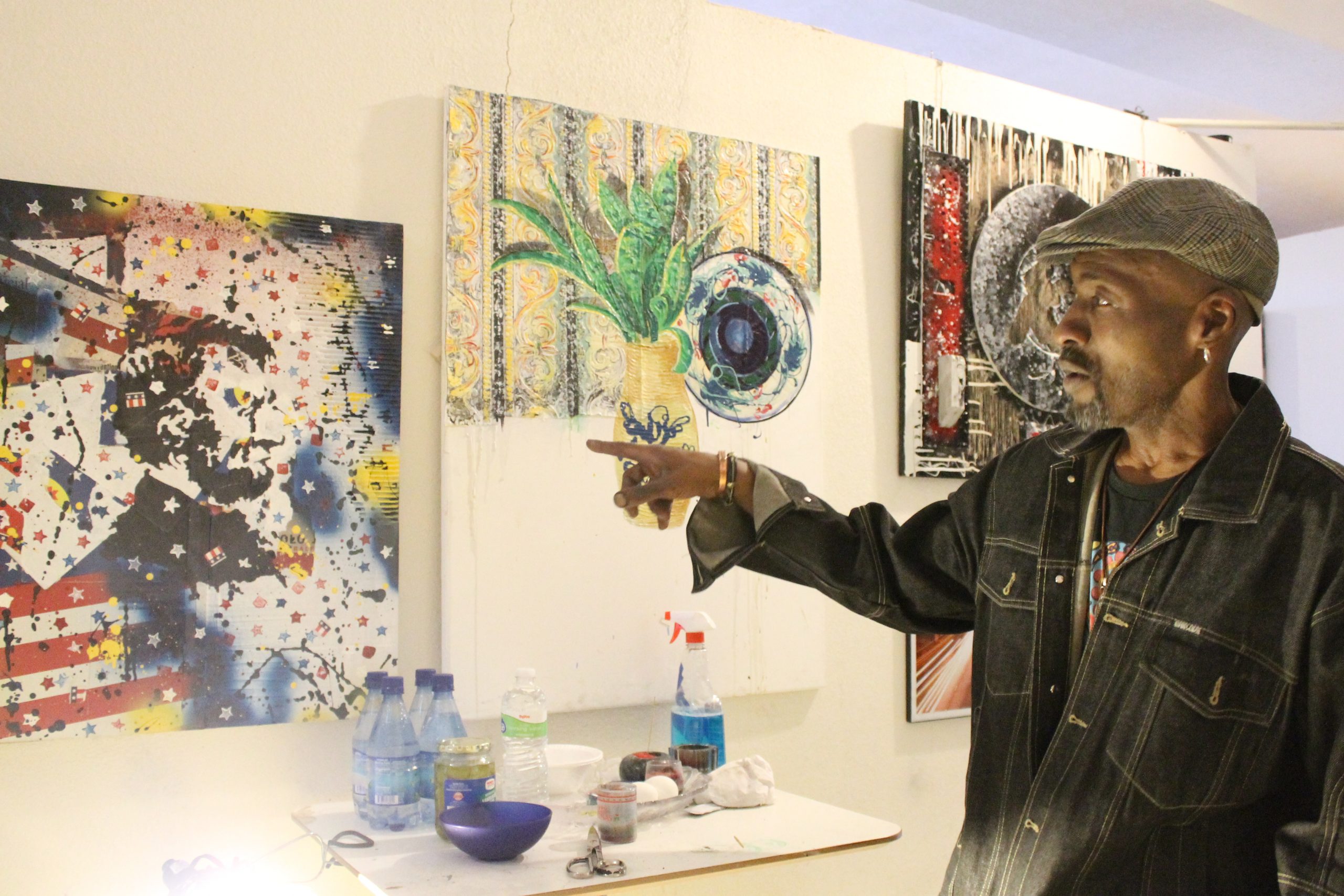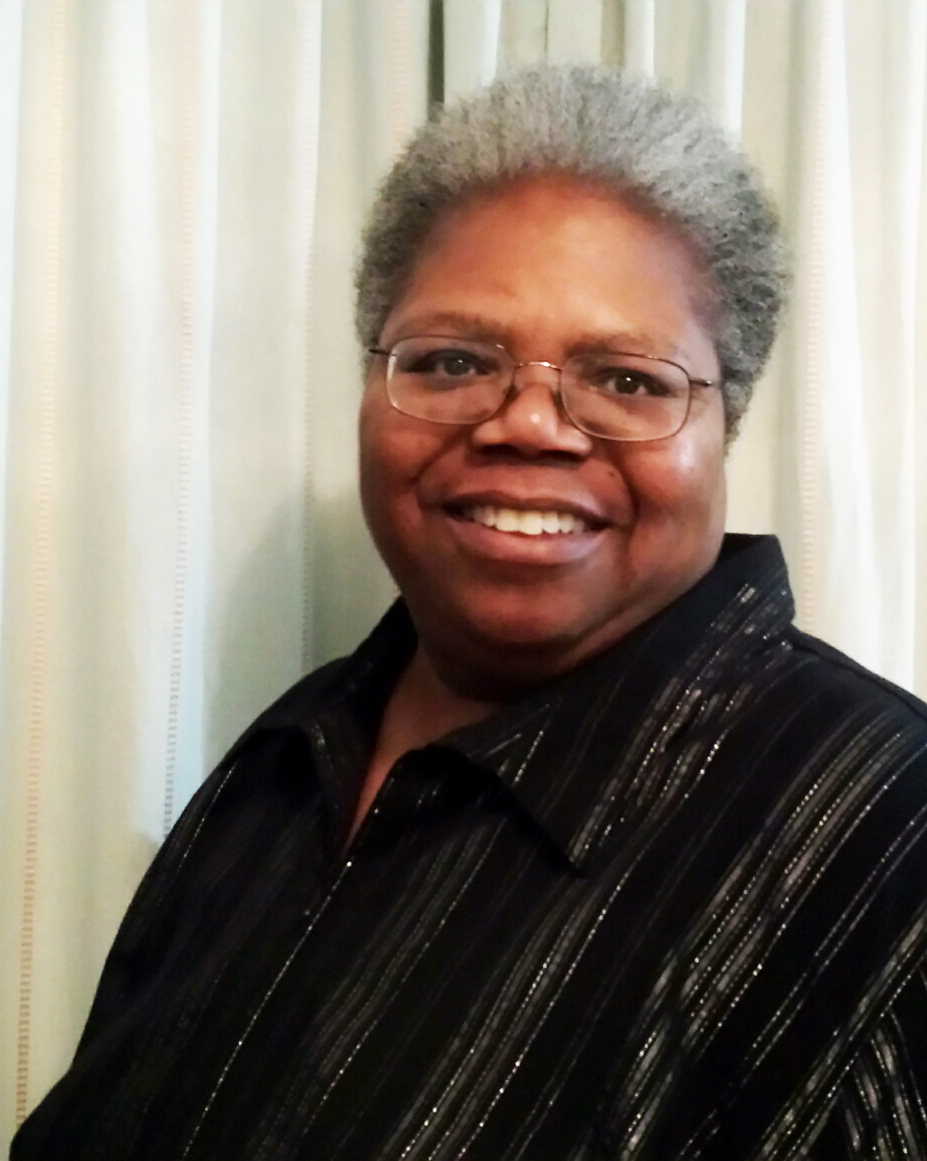Beauty is Meaning
Jeanette Winterson's exquisite notion of "the paradox of active surrender" is often what art gives us:
When you love something like reading – or drawing or music or nature – it surrounds you with a sense of connection to something great. If you are lucky enough to know this, then your search for meaning involves whatever that Something is. It's an alchemical blend of affinity and focus that takes us to a place within that feels as close as we ever get to 'home.' It's like pulling into our own train station after a long trip – joy, relief, a pleasant exhaustion.
If a writer or artist creates a place of truth and spirit and generosity, then I may be able to enter and ride this person's train back to my own station. It's the same with beautiful music and art. Beauty is meaning.
Quoted in Maria Popover's Brain Pickings, March 11, 2020
Climate Change and Poetry
A reflection by Debra Dean Murphy in Christian Century April 17, 2023
Alarm bells are ringing about the effects of climate change, but are enough people hearing them?
Who better to sound the alarm about impending ecological doom than Mary Oliver, the widely read poet-naturalist-lover of the world who has immersed and invested herself in soil, seashore, forest, and wetland her whole life?
Oliver answers in the way that an artist must. The worst kind of poetry is preachy and argumentative. Oliver invites the reader into wonder, into the harvest of presence, so that in forgetting ourselves for a moment and attending, say, to the “trim and feistiness” of a single green moth, we might possibly (there are no guarantees, such is the risk art takes) be initiated into a practice, a form of wisdom, a way of life, whereby in time we might come to care passionately, purposefully, about more of our neighbors, human and nonhuman, with whom we share this one world.
Brown Bag Concert Program Director: Helping Musicians Create the Programs of their Dreams
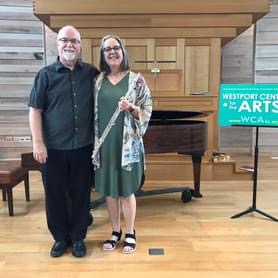 Lyra Pherigo manages the Westport Center for the Arts’ Brown Bag Concert Series. Before and since she took over management of the program, Pherigo has performed regularly with her husband Robert, seen in the photo below. She loves giving other musicians the opportunity to perform in a great venue and to design a program that is personal to them.
Lyra Pherigo manages the Westport Center for the Arts’ Brown Bag Concert Series. Before and since she took over management of the program, Pherigo has performed regularly with her husband Robert, seen in the photo below. She loves giving other musicians the opportunity to perform in a great venue and to design a program that is personal to them.Pherigo knows how important it can be for musicians to get to perform in their own voices. She herself began her association with WCA’s noontime concerts as a performer. And now that she’s the director of that program, she appreciates the opportunity to offer other musicians something she knows is rare – the chance to create the program of their dreams.
All kinds of musicians show up on the stage of the Westport Presbyterian Church for the Brown Bag Concerts. They may be members of a symphony orchestra who have put together a trio or quartet. They may be a jazz band who wants to test out new material. They may be new singer-songwriters who want to get in front of an audience.
They’re all professional musicians. They also create their own program – often showcasing favorite works they don’t get a chance to perform elsewhere. They all find a welcome audience at the concerts.
The concerts, held the third Friday of the month, are free and the doors of the church are open to everyone.
Pherigo moved to Kansas City in the early 1990s. She and her husband, Robert, a pianist, singer and composer, had met as undergraduates at Arizona State University. “He became my boyfriend and my pianist. We’ve performed together for 44 years,” she says.
Lyra is a flutist, soprano, and choral director. She’s played the flute with newEar, KC Symphony, KC Chamber Orchestra, KC Ballet, and KC Civic Opera, and also played with Starlight Theater and Theater League productions. She collaborated in the recording of a documentary titled “We the People” created for IMAX Theater, and learned to play Asian flutes, called Dizi flutes, for a production of Miss Saigon. She lends her soprano voice to Schola Cantorum, a professional ensemble that provides music at The Cathedral of the Immaculate Conception, and conducts the Chancel choir at Bonner Springs United Methodist Church.
“My favorite musical collaboration, though, is with my husband,” Pherigo says.
It was a collaboration with her husband that first introduced her to the Westport Center for the Arts’ Brown Bag Concerts. Marian Thomas, the organist of the church, had begun a free noontime musical series and invited Lyra and Robert to perform. When Thomas decided to retire from heading up the program, she invited Pherigo to take her place.
“When I sought a new director to take my place, I went down the list of everyone who had performed in the past 20 years, and Lyra stood out as the most enthusiastic for the concept of community concerts at noon, making high quality music available and accessible for all,” Thomas says. “I knew the program would be in good hands when she agreed to direct the Brown Bag Concerts.”
The program has grown since it began. While the majority of concerts are classical, jazz and folk musicians sometimes take the stage as well. In general, “it’s a very creative way of supporting the arts,” Pherigo says of the Brown Bag Concerts and all of the work of WCA.
As Rev. Scott Myers, the late president of WCA, would say, ‘When the community creates art, the arts create community,’ she adds.
One change came about after a devastating fire at the Westport Presbyterian Church in 2011. The noontime performances were halted while the church was rebuilt. When it did reopen, the church sanctuary had been transformed into a perfect performance arena.
“The space is incredible since the fire,” Pherigo says. “People who have never been there are amazed.” The acoustics were also improved, making the church sanctuary a delightful venue for performers.
The pandemic, of course, hampered live performances. The concerts for a while were live-streamed, presenting a problem for some artists because they are required to have a license to perform copyrighted works. Pherigo learned to get around that obstacle by finding musicians who could perform early 19th century works, which do not fall under the restrictions. Folk artists performing original works were also a good option during streaming.
In fact, Pherigo’s son Lucas, a talented singer songwriter, took the Brown Bag Concert stage during the pandemic just like his parents.
Now that the pandemic has ended, audiences again fill the seats on the third Friday of every month, knowing they will get another chance to hear musicians putting their heart and soul into the noontime concert.
Exhibit: 50 Years of Works of Art by Stanley Brian Morgan
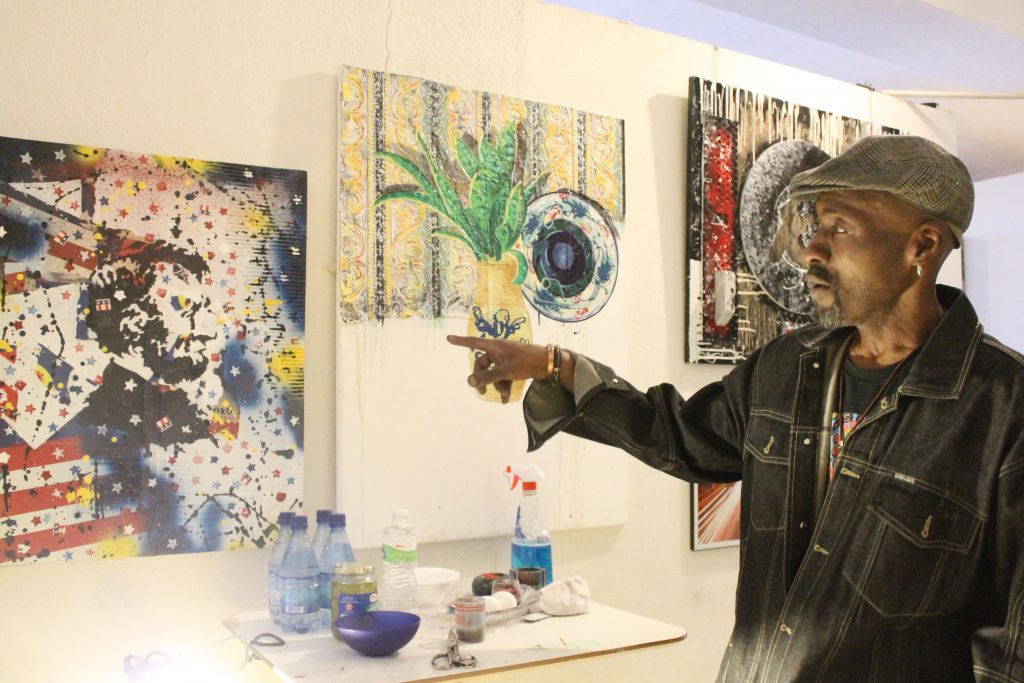 The Westport Center for the Arts will present a new exhibition called “The Lifetime Art and Works of Brian Stanley Morgan.” The show opens on Friday, July 21 at 6 p.m. at the Westport Presbyterian Church art galleries. The show will document the oil paintings, sculpture, watercolor, masks, found art and collage Morgan has created over the past five decades.
The Westport Center for the Arts will present a new exhibition called “The Lifetime Art and Works of Brian Stanley Morgan.” The show opens on Friday, July 21 at 6 p.m. at the Westport Presbyterian Church art galleries. The show will document the oil paintings, sculpture, watercolor, masks, found art and collage Morgan has created over the past five decades.
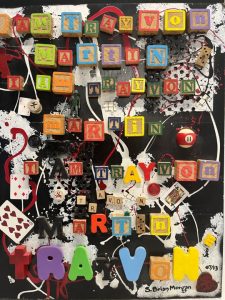 Born in Seattle, he was raised in the inner city of Kansas City and is a product of the Kansas City, Missouri public schools. The big city life in Kansas City and summers in small towns of Texas and Oklahoma “brought me stability in dealing with people from all walks of life. My experience has led me to work with culturally diverse people of all ages. I especially enjoy working with children and the elderly,” he says.
Born in Seattle, he was raised in the inner city of Kansas City and is a product of the Kansas City, Missouri public schools. The big city life in Kansas City and summers in small towns of Texas and Oklahoma “brought me stability in dealing with people from all walks of life. My experience has led me to work with culturally diverse people of all ages. I especially enjoy working with children and the elderly,” he says.
He is a graduate of the Kansas City Art and Design Institute with a B.F.A. in design (Industrial Design), which has enabled him to work with material in plastic, metal or wood for commercial or residential use.
He also holds certification in childcare and child development, behavioral management, special needs and has worked for many agencies, including the Boys and Girls Club, YMCA, YWCA, Kansas City Public Schools, City Community Centers and private schools. He presently works part-time with Kansas City Parks and Recreation and previously did arts workshops in the Kansas City Public Libraries, partnering with the Kids Team Up for Art program of Westport Center for the Arts.
Morgan is on the board of the Westport Center of the Arts
Right: Morgan's mixed-media work entitled "Trayvon Martin."
Querying Memory
Arts Reflection by Marilynne Robinson
I learned from querying memory that perception itself is beautiful and that its most casual notice can make anything proof of the fact—the tiny flowering of a weed, the bright clarity of a puddle. If the First Commandment tells us to love God with all our minds, it seems that a presumptive respect for our minds is called for. If we are to celebrate creation, surely we should enjoy every means we are given to experience it, which certainly includes the unaccountable processes of memory and reflection. . . .
Historically, human life has fallen along a range from difficult to terrible, and humankind has managed to delight in itselfthrough it all. I suspect we are not bringing our full resources to bear in the matter of enjoying life deeply in all the ways we are given, that is, in the fact and by the means of our strange brilliance, individual and collective.
From her essay in The Christian Century, Nov. 18, 2020, “My Mind and What She Remembers”
WCA Profiles: Playwright Scott Myers Likes Imagining Worlds That Don’t Exist
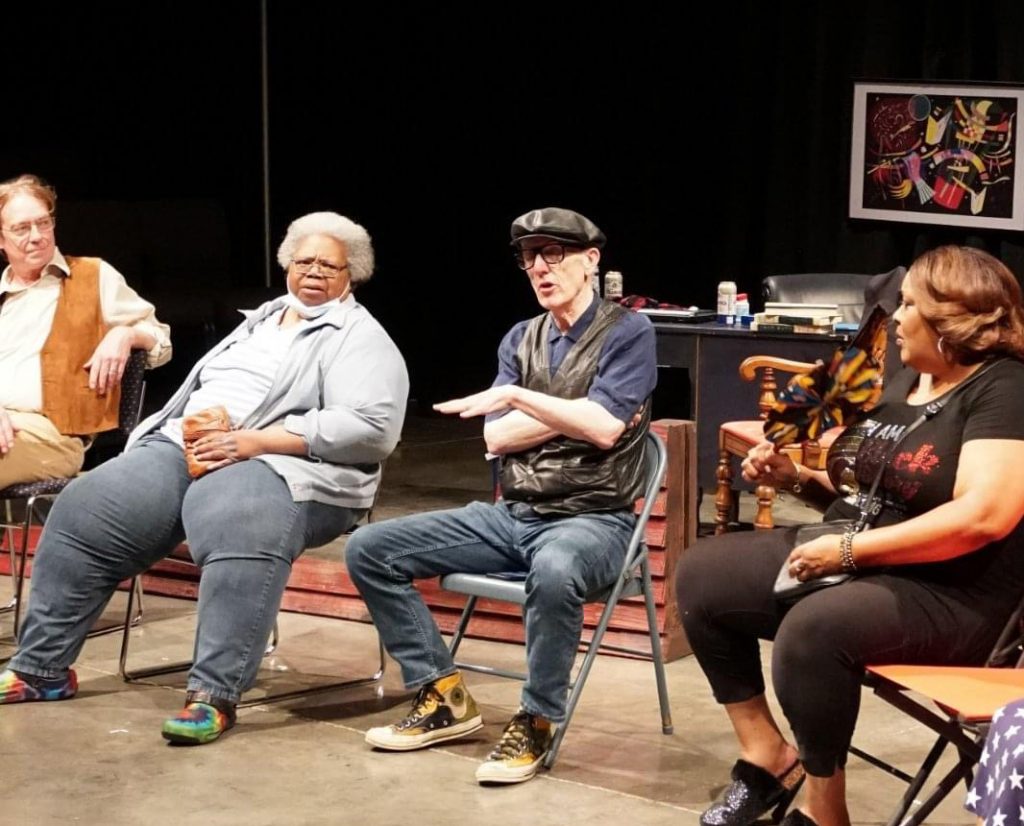
Ask playwright Scott Myers why he started writing for the stage and he will tell you that it started with a fire.
That was the devastating 2011 fire that required the Westport Presbyterian Church to be rebuilt.
“Somehow the fire totally exploded my head,” Myers, who in addition to writing plays serves as the pastor of the church, says. He had never written a play before. But one evening he saw an interview with a woman who had known John F. Kennedy, and it sparked his imagination.
“JFK: A Ghostly Evening” is, like many of Myers’ works, a chance to create conversations that never happened in real life, but would have been oh so interesting if they had. It tells the story of an imaginary conversation between real characters: John F. Kennedy and Jacqueline Kennedy, Dr. Martin Luther King, Jr and his wife, Coretta Scott King. The Kings are invited for dinner and a sleepover at the White House. Over the evening, the two couples discuss the rising violence of white supremacists in the south, the need to protect civil rights workers and people registering African Americans to vote, and the Vietnam War. JFK confronts the ghost of recently-murdered Medgar Evers.
The Kansas City Star called the play, “….a work that packs a punch...the show is buoyed by serious intent and a provocative view of history.“
For Myers, the attraction to playwriting is the ability to imagine worlds that do not exist. “I just like living in an alternative reality,” he says.
He’s now written 12 plays in the past 10 years. They include: “JFK-- A Ghostly Evening;”
“Star Over Our Tree House;” “Stealing Kandinsky;” “The Moon's Language;” “Oracle of the Ozarks;” “Your Flight Leaves Tonight;” “All My Shrinks Have Been Spies;” “Bottle of Fire;”
“Mo Motley and the Money Gods;” “Only the Wounds and Weapons Have Changed (co-writer with Jacqee Gafford);” “Gonna Shout When the Truth About You Comes Out;” and “Big Horn's Secret.”
Some of the works have social justice themes, but Myers points out that he has also written a play based on a crime that happened in the Ozarks and another that explored the relationship between two characters whose mothers had recently died.
Myers’ plays have all been produced by the Westport Center for the Arts, a nonprofit outgrowth of a Westport Presbyterian Church arts committee. In the beginning, they were often staged readings. Later, the plays were produced in the church sanctuary space. In recent years, Myers has taken his plays to the professional Just Off Broadway Theatre, after receiving advice from a trusted collogue that to fully realize the plays, they have to be done on a ”real” stage.
That move has improved the production value of the plays, but also creates a challenge, Myers says. Kansas City has few smaller venues that are affordable for theatre companies. The Westport Center for the Arts values keeping ticket prices low. ““We want people to come and listen and give what they can afford,” Myers says. “We realize that some people will be able to give big donation, while others won’t.” The group has to be creative in finding ways to stage the plays without having to raise prices.
The play “Only the Wounds and Weapons Have Changed” has just closed after a successful run at the Just Off Broadway Theatre. Myers is already at work on his next play, which he hopes to produce next spring. Titled “Gonna Shout When the Truth About You Comes Out,” it takes place on Juneteenth at 18th and Vine and stars, like many of his other works, a combination of real and imagined characters.
Taylor Brown Promoted To Executive Director of WCA
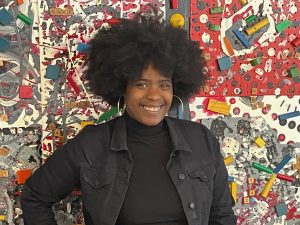 The Westport Center for the Arts board of directors has promoted Taylor Brown to Executive Director. Brown has been serving as acting executive director. According to board president Scott Myers,” her artistic skills, her communication skills, her energy and leadership make her the perfect person to lead our sixteen-year-old creative, community arts initiative. Taylor's eight years of experience in other dimensions of WCA's work gave us confidence that she could take the leadership baton in a mission to uncover hidden beauty and meaning in Kansas City through thearts of theatre, music, the Dancing Word (merging poetry and dance), art exhibits, Arts for Justice, and the possibility of reinventing creative children's arts programming WCA has previously done. We are proud of her great work!”
The Westport Center for the Arts board of directors has promoted Taylor Brown to Executive Director. Brown has been serving as acting executive director. According to board president Scott Myers,” her artistic skills, her communication skills, her energy and leadership make her the perfect person to lead our sixteen-year-old creative, community arts initiative. Taylor's eight years of experience in other dimensions of WCA's work gave us confidence that she could take the leadership baton in a mission to uncover hidden beauty and meaning in Kansas City through thearts of theatre, music, the Dancing Word (merging poetry and dance), art exhibits, Arts for Justice, and the possibility of reinventing creative children's arts programming WCA has previously done. We are proud of her great work!”
Actor is Never Happier Than When She is on Stage
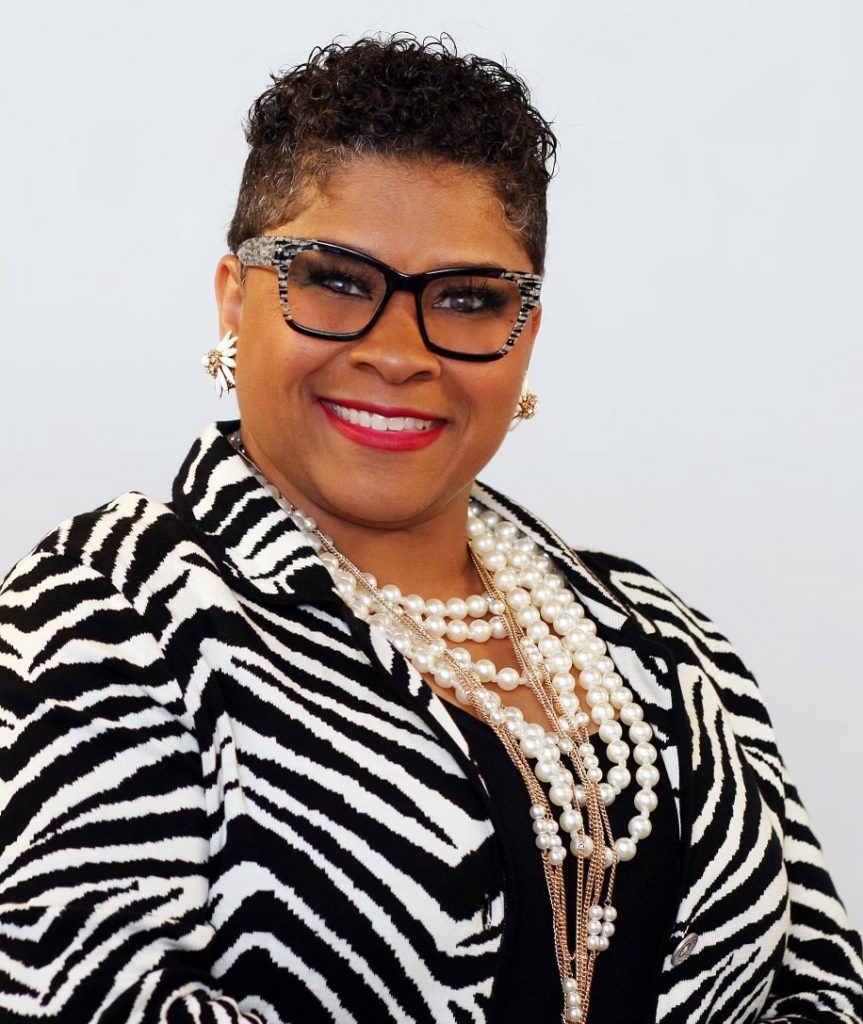 For the actor Paulette Dawn, there is absolutely positively nothing better than being on stage.
For the actor Paulette Dawn, there is absolutely positively nothing better than being on stage.
"It is a fire I have in me,” she says. “I don’t want to put it out.”
It took her a while to make her childhood dream of singing and acting come true, and now that it has, she has no intention of letting it go.
Dawn plays Ida B. Wells in the Westport Center for the Arts’ production of “Only the Wounds and Weapons” have changed. The play, co-written by interracial playwright team Jacqueline Gafford and Scott Myers, features many lesser-known people who have played key roles in Black history. It centers around the struggle to liberate people who were captured and shipped from Africa to America to be sold as slaves. Characters include Kansas City historical figures Leon Jordan, a politician and Lucille Bluford, journalist with the Kansas City Call. It also includes several nationally known personalities such as James Baldwin, Marian Anderson and Fannie Lou Hamer.
Dawn plays Ida B. Wells, an investigative journalist, educator and early civil rights leader. Dawn found it inspiring to play Wells, and also found it easy to understand the type of energy Wells brought to her work.
“She talked about lynching to the point where she had to leave town before she was lynched,” Dawn says, referring to the fact that a white mob destroyed Wells’ newspaper office and printing presses after she wrote a pamphlet exposing the horrors of slavery. In other words, Wells put her all into her work.
“That’s me, in essence,” Dawn says.
The Kansas City actor does not come to the stage from a typical background. Her love of the theater, and her desire to disappear into a role, started when she was young. When she was 17, she saw a production of “The Sound of Music” at the New Dinner Theater, and immediately told her parents, “I want to sing and dance on stage.”
But Dawn had begun suffering abuse almost a decade earlier and had to work through a lot of issues before she could bask in the spotlight. She remembers herself as a shy child who walked with her head down. In college, she wrote poems, and “it got pretty dark for a while.” She was in her 30s when a friend invited her to join the cast of a production about addictions at the Gem Theater. With no experience, Dawn stepped out on that stage and immediately felt like being up there was what she was meant to do.
She never feels more confident or free as when she is acting.
“Now I do whatever I can do to get on stage. It’s an exciting pastime for me. I am a wife, a mother, I work fulltime, but I take every opportunity I can to pull myself away from real life.”
Since that first experience, Dawn’s theatrical roles have included Jackie Dubois from “Reflections 1,2 & 3,” The Woman from “Blues in The Night,” Aunt Em from “the Wiz,” and Polk”from Gods • Sib Tale Folk Opera. She was also cast in the Westport Center for the Arts’ “Bottle of Fire” as Reverend Carmenita Turner and has read poetry as part of WCA’s Dancing Word series.
She counts her family as her biggest support system. Dawn says her husband is always in her corner, and her daughter helps her with her scripts.
The actor has developed a unique method of getting herself ready to perform. For one thing, she practices reading her lines in front of a mirror, so she can see what emotions she’s expressing. She also has a ritual she follows right before she goes on stage – shadowboxing. “That’s how I get myself hyped up. If I have any nerves, I shawdowbox right backstage, off in the corner. Then when I get on stage all the nerves are gone.”
The pandemic took a toll on Dawn and the local theater community as things shut down for a few years. But now, she finds, not only are actors thrilled to get back on stage, but audiences are also thrilled to have them back.
The actor who started acting in her 30s now wants to continue getting on stage every chance she gets. She dreams of being on Broadway. If not on Broadway herself, at least at a Broadway show. She wants to study other actors and throw herself into new roles. She wants to continue to stretch herself and act and sing for the public.
“When I’m up there, everything else melts away,” Dawn says.
For Playwright Jacqueline Gafford, the More Things Change, the More They Stay the Same
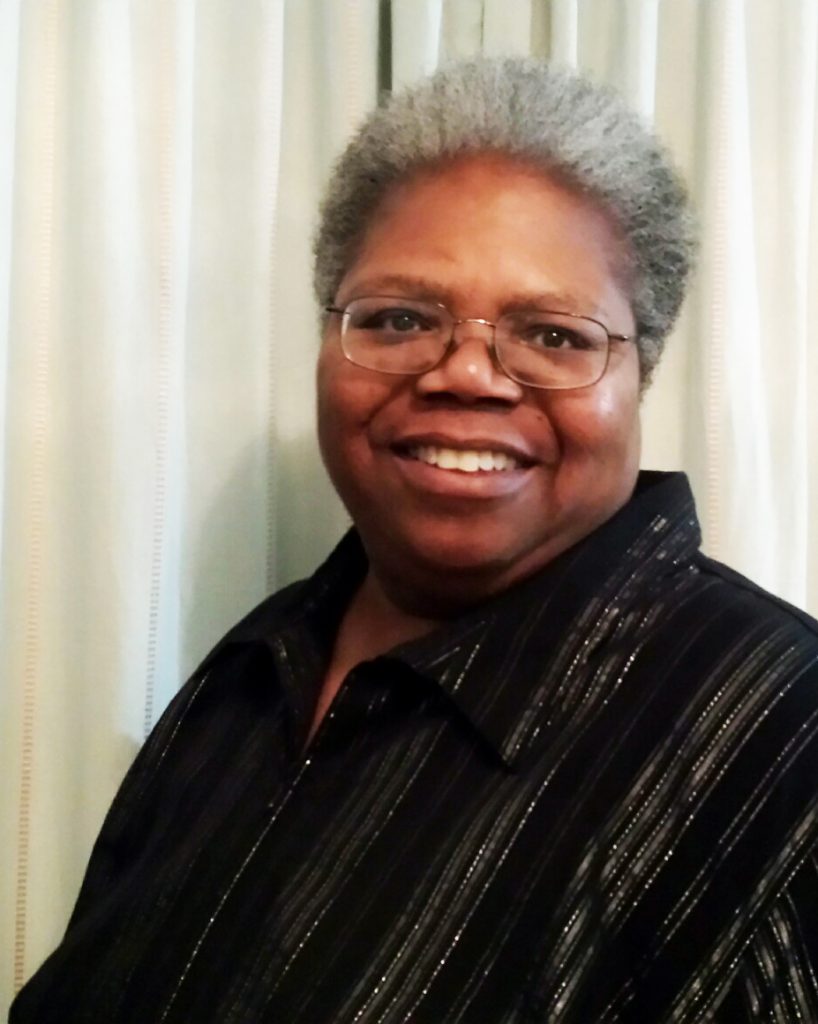 Theatre director Jacqee Gafford has something of a motto that overarches her work: only the wounds and weapons change.
Theatre director Jacqee Gafford has something of a motto that overarches her work: only the wounds and weapons change.
She used to feature this concept in a speech she did on Black history.
It meant, to her, “now the wounds may not be lashes across your back, they may be someone trying to take your house. The weapon may once have been a whip, now it’s the law.”
She keeps it in mind when she’s writing her plays, which mostly deal with little-known Black history and are often based on wondering what the conversation might be like if historical figures came together, and how that conversation might link to issues in today’s news.
She says her plays are fact based. “They may not be absolutely true, but they could be.”
In fact, she and co-writer Scott Myers adopted the phrase “Only the Wounds and Weapons Have Changed” for the title of the work they are currently producing for the Westport Center for the Arts. Although the characters – two young people on a slave ship, the journalist Ida B. Wells, the newspaper editor William Trooter, Kansas City’s Call Newspaper Editor Lucille Bluford, and local political figure Bruce R. Watkins – are not necessarily household names, she thinks maybe they should be. Their history has lessons for young people today.
“When I hear about a Black man being beaten by a policeman, I think, the same things have been going on forever,” she says.
Although the play takes place in an earlier time of lynching and Exodusters, what occurs “has happened thousands and thousands of times.”
Gafford moved around all over the country as a child, often to places where her family members were the only Black faces. She developed a love of theatre, even majoring in it at college. When she finally settled in Kansas City, Gafford says, she spent a long time looking for Black theatre before “someone finally told me there was no Black theatre.” She found work at the Theatre for Young America and directing at the Unicorn. Gafford also helped to form the theatre company InPlay, with a mission of reflecting the multicultural character of the United States. And that’s when she began to write scripts.
“When the company was started, we were broke,” she says. “We couldn’t afford to pay royalties for a published play. So I started writing.”
InPlay is now working frequently with the Westport Center for the Arts. Gafford and WCA’s Scott Myers have done about five plays together. During the pandemic, they started collaborating on “Only the Wounds and Weapons Have Changed,” which will premier March 17 and run through April 1 at the Just Off Broadway Theatre. (link to tickets)
Westport Center for the Arts also plans to offer Gafford’s play “Nothing Comes to Sleepers” later this year. It takes place in a beauty shop in Kansas City on the day Martin Luther King was assassinated. It gave her a chance to explore the 1960s, including the scene in Kansas City, the Vietnam War, and the Black Panthers.
Like her other works, Gafford hopes this one will be a jumping off point for people to delve into history and learn how little anything changes except the wounds and weapons.
God the Sculptor of the Mountains
by John Thornburg
God the sculptor of the mountains,
God the miller of the sand,
God the jeweler of the heavens,
God the potter of the land:
you are womb of all creation,
we are formless; shape us now.
God the nuisance to the Pharaoh,
God the cleaver of the sea,
God the pillar of the darkness,
God the beacon of the free:
you are gate of all deliv’rance,
we are sightless; lead us now.
God the unexpected infant,
God the calm, determined youth,
God the table turning prophet,
God the resurrected Truth:
you are present every moment,
we are searching; meet us now.
God the dresser of the vineyard,
God the planter of the wheat,
God the reaper of the harvest,
God the source of all we eat:
you are host at every table,
we are hungry; feed us now.

